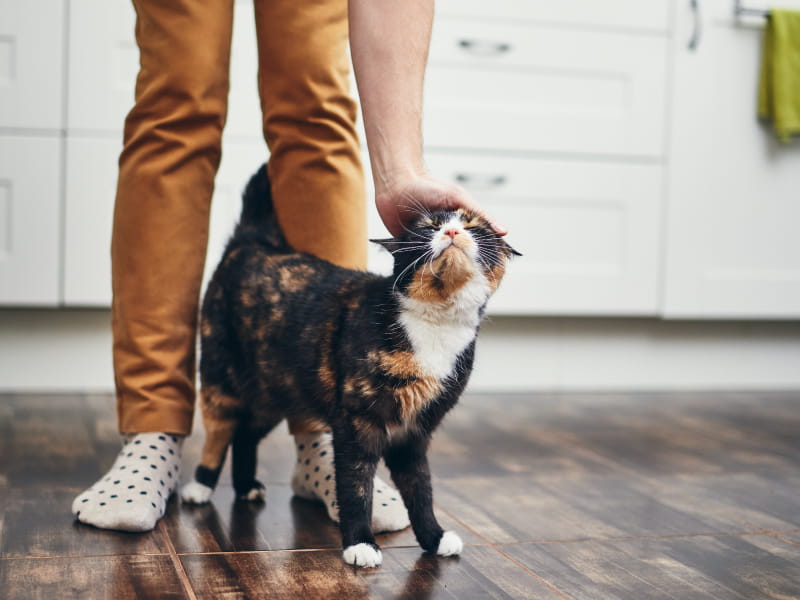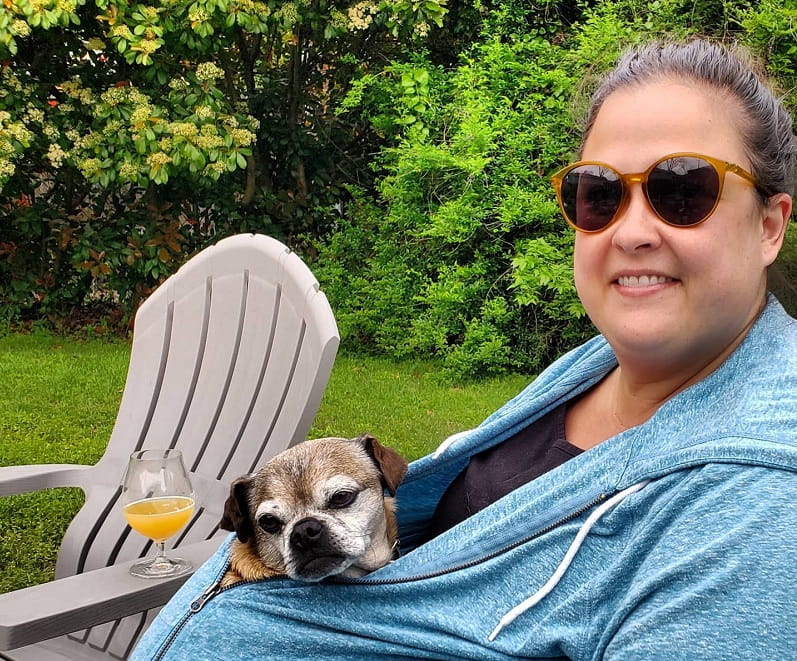A silver lining for foster and adopted pets – and their people – during coronavirus pandemic
By American Heart Association News

At a time when it's hard to be close to old friends, new furry ones are helping fill the gap. They also may be helping improve their humans' health.
Amid COVID-19 stay-at-home orders, animal adoptions and foster care have skyrocketed, with shelters across the U.S. reporting empty kennels. From March 15 to late April, nearly 600 people had completed online applications for the New York City foster program of the American Society for the Prevention of Cruelty to Animals – about twice the usual amount, society President and CEO Matt Bershadker said. In Los Angeles, more than 800 people had completed ASPCA online foster applications.
One software company serving nearly 1,200 shelters reported almost an 800% increase in fostered animals, Bershadker said, compared with the same time last year. Meanwhile, shelters are innovating to meet the adoption demand while adhering to social distancing.
"Animals … provide incredible comfort and companionship," Bershadker said, "especially during times of crisis."
They also may provide much more.
Having pets, especially dogs, appears to be linked to a lower risk of cardiovascular disease, a 2013 American Heart Association scientific statement concluded. Also, people with existing cardiovascular disease who own pets may have better odds of living longer.
"The clearest benefit of pet, specifically dog, adoption is that most persons increase their regular physical activity, which we know promotes cardiovascular health," said Dr. Glenn Levine, a professor of medicine at Baylor College of Medicine and lead author of the scientific statement. "There is good study data that dog adoption leads, at least in most people, to increased daily walking."
Dogs may improve health in other ways too.
"People may become more invested in taking care of their health," Levine said, "and perhaps they better seek medical attention and comply with their medications."
Kristin Breen and her husband, Russ, are seeing some of those benefits.
The coronavirus crisis caught the Texas couple amid a job-related relocation. When stay-at-home orders kicked in, the Breens decided to hunker down in their Dallas house, with its fenced yard, rather than a new apartment in Austin. Their thoughts turned to Mike, a senior "chug," or chihuahua-pug mix, whom they had fostered before their planned move.
"I was pretty down in the dumps when this whole thing started. My husband looked at me and said, 'Should we get Mike back?' and I said yes, and it was the best decision we made," Kristin said.
"He makes things a lot more fun and happy, something to distract you from the world we're living in right now," she said. Unless the "perfect home" comes along first, the Breens expect to adopt Mike once their own situation settles down.

Despite his age, 10-year-old Mike is energetic and has prodded the couple to exercise more. "We walk him three times a day and have been getting out and about in the neighborhood. It's been beautiful, and we need exercise," Kristin said. "We've definitely both lost a little weight, and it's spurred us to make some healthier changes."
Research in fact shows people with pets, particularly dogs, are more likely to report adhering to diet and exercise recommendations than are non-pet owners. Studies also have linked:
– Having a cat to a reduced risk of cardiovascular disease, especially stroke, in women.
– Dog ownership to higher survival rates among people hospitalized for heart attacks or strokes caused by a blood vessel blockage.
– Dog or cat ownership to reduced risk of high blood pressure.
More research is needed to understand the interplay between pets and human health. One thing that's not clear, Levine said: "Do pets make people happier and healthier, or do happier and healthier people tend to adopt pets?"
The main reason to take on a pet is to provide a loving home, he said. If you want to improve your cardiovascular risk, you have to do more.
"Simply adopting a pet, while still sitting on the couch all day eating potato chips and smoking cigarettes, is not the way to improve your health and prevent heart disease."
Editor's note: Because of the rapidly evolving events surrounding the coronavirus, the facts and advice presented in this story may have changed since publication. Visit Heart.org for the latest coverage, and check with the Centers for Disease Control and Prevention and local health officials for the most recent guidance.
If you have questions or comments about this story, please email [email protected].





